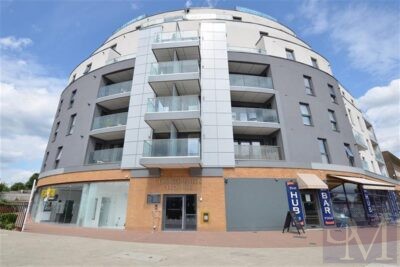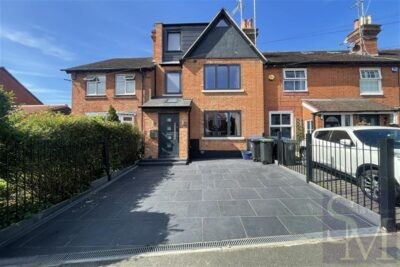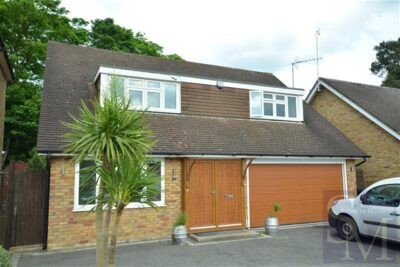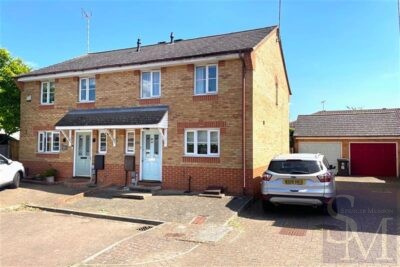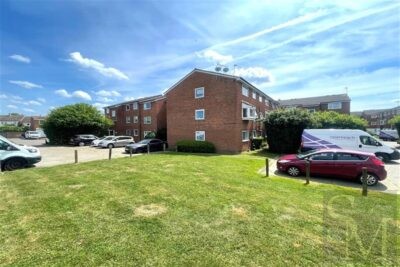Loughton Area Guide
Loughton is a popular commuter town with its roots over 2500 years old and situated on the borders of Essex and Greater London. It is fortunate to have great access to the City and West End of London using the Transport for London Central Line and also directly linked by M11 motorway to the Docklands and Canary Wharf financial and entertainment centres. The earliest known structure in Loughton is Loughton Camp which is an Iron Age earth fort in Epping Forest dating from around 500 BC. Loughton re-appeared as an Anglo Saxon settlement called Lukintone, which derives from “ Lukin’s clearance in the forest”, and is noted in the Domesday Book as Lochintuna comprising a rural population of 40 villagers. 41 smallholders. 6 slaves. 1 freemen. Over the centuries Loughton has grown into a town with a population of around 32,000 and merging with Buckhurst Hill to the south but fortunate to be surrounded by Epping Forest to the North and West and the River Roding’s floodplains to the East which has helped it retain a unique character amongst London’s suburbs. The forest, which were part of Royal hunting grounds for many centuries, meant that there are many times that the area was visited by Royalty the Tudors and Stuarts and Mary Tudor owned her country house Loughton Hall before becoming Queen.
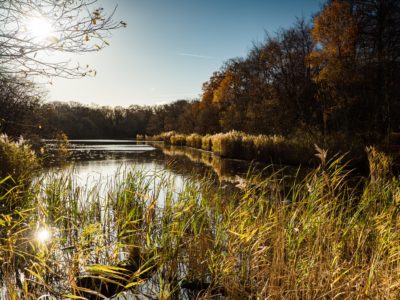
Epping Forest was protected by Act of Parliament in 1878 and is now maintained and protected by the City of London Corporation as a place of natural beauty and for free use for recreational walks and horse riding. It changes constantly during the seasons and as it features traditional British deciduous trees such as birch, beech and chestnut it has wonderfully colour shows of brightly coloured lives in the autumn. The forest was protected from enclosure by many legal disputes and the defiant direct action of local residents determined to save their rights to lop wood so that the Epping Forest Act was passed giving the forest to the people for perpetuity. Lopping Hall was built in the High Road to commemorate this achievement of local people over rich landowners and is still a centre of community life hosting many societies and hobby clubs as well as being the stage for the local amateur dramatic and opera productions.
Loughton changed little until the 17th century when the road was continued out to Cambridge and it became a coaching town with many inns and blacksmiths serving one of the main routes from London to East Anglia. The next major change, and with it largescale growth in the town, came with the arrival of the railway in 1856. Local commerce and industry sprung around the High Road as the connection to London was enhanced and secured as this link still provides the area with a lot of its wealth and influence. For quite a few decades Loughton has been, and still is, the site of the Bank of England printing works where bank notes for the UK and also the EU and other countries are printed and old notes destroyed although this is now privately run by De la Rue.
There have been many famous and noted people from the arts, architects, musicians, writers, politicians and sportsmen who have lived or worked in Loughton over the centuries and these include poet Alfred Lord Tennyson who lived in High Beech, Len Murray who was General Secretary of the TUC, the music hall pianist Mrs Mills, two England football managers, Ron Greenwood and Terry Venables, as well as many Premier League players and thriller writer Ruth Rendell who grew up in Loughton and based some of her books on the lovely York Hill area of Loughton known as “Little Cornwall”. There is much local pride that Winston Churchill was also the local MP whilst he was Prime Minister during the war. On the other hand, probably the most notorious person who lived in and around Loughton is the highwayman and thief Dick Turpin and there are many stories of his time and crimes in the area.
In the modern day Loughton has evolved again into a town with many boutiques, hair and pampering salons, restaurants and bars to service the demands of some of it’s residents which include the nouveau riche from sport, banking and general commerce and has actually been stereotyped by inclusion in national TV programmes such as Essex Wives and The only way is Essex which document this facet of affluent lifestyles in the Essex – London border towns. Loughton, Buckhurst Hill and Chigwell gained the epithet of “The Golden Triangle” which is both loved and derided by different members of its’ community. Loughton retains its unique character with the forest and also embraces the modern fashions as it continues to be a popular and vibrant place to live with easy access to London for work and recreation.
Recent Property to rent in Loughton
Spencer Munson Property Services have been a specialist residential Lettings agent in the Loughton area since Spencer founded the company in 2006. See our recent Loughton properties below or contact us for further information.
Willingale Road, Loughton IG10
£420,0002 Bedroom House
**TWO BEDROOM TERRACED HOUSE ** **MODERN KITCHEN** **MODERN BATHROOM/W.C** **DOUBLE GLAZING** **GCH** **GOOD SIZED REAR GARDEN** **OFF STREET PARKING** ** COUNCIL TAX BAND C. EPC C** **Landmark House, The Broadway, Loughton, IG10
£375,0002 Bedroom Flat / Apartment
** LUXURY TWO BEDROOM APARTMENT WITHIN LANDMARK ** ** TWO DOUBLE BEDROOMS ** ** PRIVATE BALCONY ** ** LUXURY FITTED KITCHEN** ** 6TH FLOOR ** ** ALLOCATED PARKING SPACE ** ** CLOSE TO DEBDEN CENTRAL LINE STATION** ** LIFT ACCESS** ** LEASE WITH 142 YEARS REMAINING ** SERVICE CHARGE £1582 ** ** EPC RATING B. COUNCIL TAX BAND C ** **Smarts Lane, Loughton, IG10
£3,250 pcm + Fees4 Bedroom House
** FOUR BEDROOM TERRACED HOUSE** ** THREE BATHROOMS** LARGE LIVING SPACE** ** FULLY FITTED KITCHEN** ** CLOSE TO LOCAL SHOPS AND AMENITIES** ** WALKING DISTANCE TO LOUGHTON TRAIN STATION** ** OFFERED UNFURNISHED** ** AVAILABLE NOW ON A MINIMUM 12 MONTHS TENANCY ** ** EPC RATING C COUNCIL TAX BAND DThe Summit, Loughton, IG10
£3,000 pcm + Fees4 Bedroom House
** 4 BEDROOM DETACHED HOUSE **** KITCHEN/DINER** **LOUNGE** ** GARDEN** ** OFF ROAD PARKING ** ** GARAGE** ** GOOD ACCESS TO LOUGHTON & DEBDEN SHOPS ** ** UNFURNISHED** ** AVAILABLE 14TH JULY ON A MINIMUM 12 MONTHS TENANCY** ** EPC Rating:C Council Tax:G **Boleyn Close, Loughton IG10
£2,650 pcm + Fees3 Bedroom House
** DELIGHTFUL THREE BEDROOM DETACHED HOUSE SITUATED WITHIN THE HANBURY PARK DEVELOPEMENT ** ** OFF STREET PARKING ** ** GARAGE** ** GROUND FLOOR CLOAKROOM ** ** WALKING DISTANCE TO LOUGHTON CENTRAL LINE ** ** UNFURNISHED** ** AVAILABLE 21ST AUGUST ON A MINIMUM 12 MONTHS TENANCY ** EPC RATING : D. COUNCIL TAX BAND FFairmeads, Loughton, IG10
£1,995 pcm + Fees3 Bedroom House
** THREE BEDROOM HOUSE ** ** SEMI-DETACHED ** ** LARGE RECEPTION ROOM** CONSERVATORY** ** SEPARATE KITCHEN** DOWNSTAIRS W.C** ** ONE DOUBLE BEDROOM** ** TWO SINGLE ROOMS** ** DRIVEWAY & GARAGE ** ** AVAILABLE 16TH JULY 2025 ON A MINIMUM 12 MONTHS TENANCY** ** EPC RATING C COUNCIL TAX BAND E**Swanshope, Loughton, IG10
£1,325 pcm + Fees2 Bedroom Flat / Apartment
**FIRST FLOOR FLAT** **TWO BEDROOMS ONE DOUBLE & ONE SINGLE** **LARGE LOUNGE** **SEPARATE KITCHEN** **FAMILY BATHROOM *OFFERED UNFURNISHED**UN-ALLOCATED PARKING** **COMMUNAL GARDENS** **AVAILABLE 26th JULY ON A MINIMUM 12 MONTHS TENANCY ** EPC RATING C** COUNCIL TAX BAND C**


